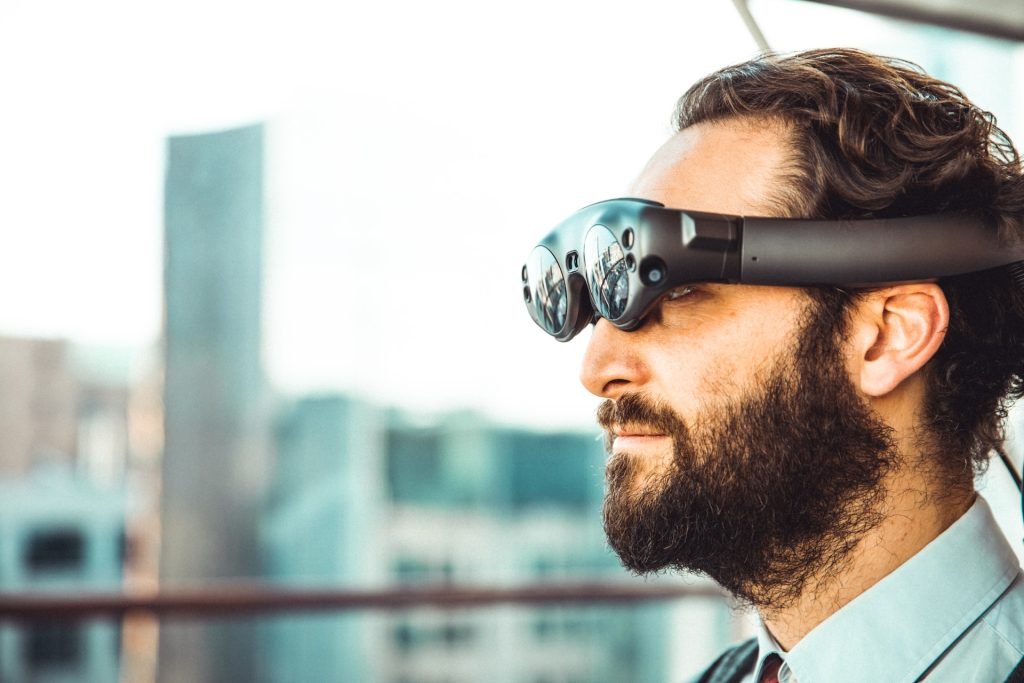AR in Digital Marketing: Boosting User Engagement and Targeted Campaigns

In the ever-evolving world of digital marketing, technology plays a pivotal role in creating innovative, engaging, and effective strategies. One such groundbreaking technology is augmented reality (AR), a powerful tool that blends digital elements into the user’s physical environment, providing immersive and interactive experiences. As AR technology becomes more advanced and accessible, it offers tremendous potential for digital marketers to create targeted, impactful campaigns that drive user engagement and foster brand loyalty.
In this article, we will explore the various applications of AR in digital marketing, discussing how businesses can integrate AR technology into their marketing strategies to captivate their target audience, enhance user engagement, and boost conversion rates. From AR-powered product demonstrations to interactive advertising and immersive brand storytelling, we will delve into the multifaceted world of AR digital marketing, providing practical examples, insights, and best practices to help you unlock the power of augmented reality for your business.
Embark on an exciting journey into the world of AR digital marketing, as we showcase its transformative potential and equip you with the knowledge and tools to elevate your digital marketing strategy. Unlock new opportunities for growth and innovation by harnessing the power of augmented reality, and create unforgettable user experiences that leave a lasting impact on your audience.
1. AR-Powered Product Demonstrations and Try-Ons
AR offers a unique opportunity to provide interactive and immersive product demonstrations, giving users a more engaging and realistic experience of your products. Examples of AR-powered product demonstrations include:
- Virtual Product Try-Ons: For businesses in the fashion, beauty, and accessories industries, AR technology allows users to virtually “try on” products using their smartphone’s camera. This not only enhances user engagement but also provides valuable insights into product preferences and trends.
- Immersive 3D Product vViews: By using AR technology, businesses can offer detailed, 3D renditions of their products that customers can explore from all angles, giving them a more accurate understanding of product features and designs.
2. Interactive AR Advertising and Promotions
AR technology can also be utilized to create interactive, immersive advertisements and promotional campaigns that capture the attention of your target audience:
- Location-Based AR Promotions: By leveraging AR technology with geolocation capabilities, businesses can deliver targeted promotions and offers to users based on their physical location. This can lead to increased foot traffic and in-store conversions.
- Interactive AR Advertising: Augmented reality can enhance traditional advertising formats by adding interactive elements, such as clickable overlays or multimedia content. By engaging users beyond static visuals, AR advertising can foster increased user engagement and generate higher conversion rates.
3. AR-Enhanced Brand Storytelling and Experiences
AR technology can be leveraged to create immersive brand experiences and storytelling, establishing emotional connections between businesses and their audience:
- Virtual Brand Events: Businesses can use AR to create immersive, virtual events for customers, offering an innovative way to engage with your brand and build lasting relationships.
- Educational and Informative AR Content: AR technology can be utilized to create interactive, informative content pieces, such as quizzes, guided tours, or how-to guides, effectively engaging your audience and showcasing your expertise.
4. Best Practices for Integrating AR into Your Digital Marketing Strategy
Successfully adopting AR technology in your digital marketing strategy requires a mindful approach and adherence to best practices, including:
- Understanding User Behavior and Preferences: Before integrating AR into your digital marketing strategy, conduct research to understand your target audience’s behavior, preferences, and expectations for AR content.
- Focusing On User Experience: Prioritize user experience when designing AR campaigns, ensuring intuitive, engaging, and meaningful interactions with your brand.
- Choosing the Right AR Platform: Select an AR platform or software solution that best fits your business needs, technical capabilities, and budget, ensuring smooth implementation and seamless user experiences.
- Measuring and Optimizing AR Campaigns: Establish quantifiable goals and key performance indicators (KPIs) for your AR campaigns, and use analytics to measure performance, identify areas for improvement, and optimize your campaigns over time.
Conclusion:
Integrating augmented reality into your digital marketing strategy offers immense potential to create compelling, engaging, and immersive user experiences that drive higher engagement, brand loyalty, and conversions. By understanding the different applications of AR and implementing best practices, businesses can harness the power of this cutting-edge technology to elevate their marketing efforts and achieve sustainable growth.
Embark on the journey to seize the opportunities that AR digital marketing presents, positioning your business at the forefront of innovation and industry trends, while delivering unforgettable and engaging experiences for your audience.
As a trusted digital marketing agency, RewireHub can help businesses develop and implement a successful AR marketing strategy. Our team of experts stays up to date with the latest AR technologies and trends, allowing us to create tailor-made solutions that meet the unique needs and goals of each client. Let us help you unlock the full potential of augmented reality and take your digital marketing strategy to the next level. Contact us today to schedule an appointment!